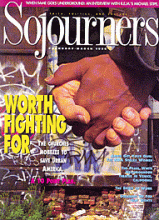Quite arguably, R.E.M., since its formation in 1980 in the college town of Athens, Georgia, has become the most commercially successful and critically acclaimed rock band in the United States. That is a heady accolade for four fellows who merely set out to be one more "underground band" in the post-punk Athens scene.
Of course, the 1981 independent recording of "Radio Free Europe," subsequently followed by R.E.M.'s legendary debut album Murmurs (1983), gave "those with ears to hear" clues about what was to come. The band's asymmetric folk-rock, driven by an irrepressible passion and a lyrical impressionism bordering on the avant garde, broke all the rules about what was supposed to work for pop music.
A graph charting the history of R.E.M.'s record sales looks like the steps ascending a steep pyramid - remarkably, each album has met with incrementally greater success. In 1987, the band released a radio-friendly Top Ten single, "The One I Love," helping Document to become the first R.E.M. album to sell a million copies. The follow-up, Green , gave birth to another popular single, "Stand," and with it a broader based audience that extended well beyond the college-radio crowd and the alternative press that had served the band so faithfully in its early years.
However, it was their seventh album, Out of Time, that elevated their popularity to a completely different level. Out of Time sold a million copies in its first 10 days of release, then camped out for several months on the top of the music charts.
Ironically, the first person to crank down the volume on the hype over the band's success is John Michael Stipe, the voice behind the sound. Once describing R.E.M. as a "bunch of minor chords with some nonsense thrown on top," the Atlanta-born Stipe treats the cult of fame as if it were the plague.
Read the Full Article

